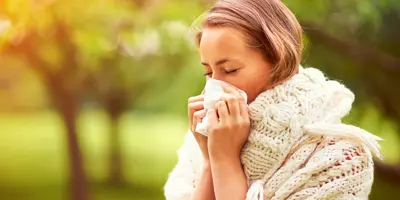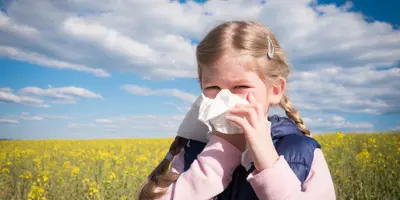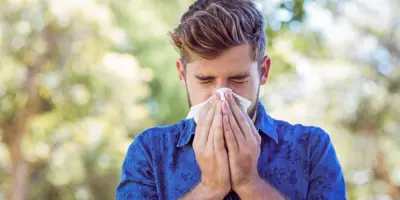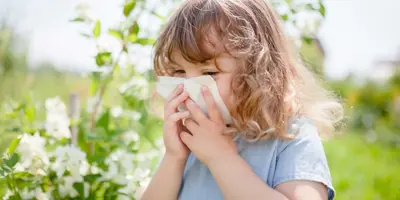41 people found this helpful

There are various ways to treat hay fever – your GP might prescribe steroids or refer you for immunotherapy, while the pharmacist will be able to offer antihistamines. But what if you’d prefer herbal remedies for hay fever? We’ve got five of the best hay fever home remedies for you to consider. Here’s how to treat a pollen allergy at home.
1. Steaming with essential oils
Blocked noses and congestion are a common hay fever symptom, and steaming is one of the most effective hay fever home remedies to clear the airways. Adding essential oils can heighten the effect, as the herbs have cleansing properties. Eucalyptus and lavender are popular ones to add to hot water when steaming to relieve nasal congestion. You can also add a few drops of essential oils to a soft tissue to hold near your nose.
Cushelle Regular Tissues are strong enough to hold the essential oil throughout the day, while being gentle on your skin.
2. Local honey
The thinking behind eating two tablespoons a day of locally grown honey is that it’ll help to desensitise the body to local pollen. In time, that pollen will no longer trigger an allergic reaction. This could be worth a try if you think you have a local pollen allergy. Home remedies like this are best started three months before hay fever season begins.
3. Probiotics
Research carried out by the Institute of Food Research found that ‘good bacteria’ from probiotics could help to reduce the body’s immune response to grass pollen. Volunteers who drank milk with an added probiotic strain called Lactobacillus casei were found to have a more balanced immune response.
Although there are foods that are naturally high in good bacteria, like bio-live yoghurt, probiotics can be taken as supplements.
4. Foods with anti-inflammatory and antihistamine properties
If you’d rather not take antihistamines in drops or tablet form, you can eat certain foods instead. The following foods could help boost your immune system, reducing the allergic reaction:
- Ginger
- Turmeric
- Garlic
- Onion
- Horseradish
- Oranges
- Kiwi
- Pineapple
- Chillies and hot peppers.
We’ve looked at how to treat a pollen allergy at home using food, and now we’ll focus on herbal remedies for hay fever in the form of tea.
5. Herbal teas
Both turmeric and ginger came up on that list of beneficial foods, and in combination, they can be used as a specific remedy for hay fever. They’re naturally hot and spicy, and help to stimulate the system. You can grate fresh ginger into hot water and add turmeric to create a tea that helps ease hay fever symptoms. Other herbal teas that are thought to help include:
- Liquorice. Soothes the throat and helps loosen mucus so you can cough it up.
- Peppermint. Releases congestion and mucus around the nose and head.
- Nettle. Reduces the amount of histamine in the body.
- Chamomile. A natural antihistamine with anti-inflammatory properties.
With these pollen allergy home remedies, you’ve got five ways to treat your symptoms naturally.
Related articles
The truth behind hay fever causes: hay fever myths debunked
What causes hay fever? We debunk the myths surrounding hay fever triggers and answer common questions like is hay fever contagious? Find the answers here.

A guide to cross-reactivity allergy issues
Are you looking for info about cross-reactivity? Oral allergy syndrome? Latex-fruit syndrome? Discover the facts, and what you can do about it, here.

Sports & pollen allergies 101: tackle a runny nose when running
Learn what to do about exercise-induced rhinitis. With our top tips you’ll be able to keep running with hay fever and limit sneezing after exercise.

Pollen allergies: symptoms & diagnosis
Discover common grass and tree pollen allergy symptoms. Find information on what happens in a pollen allergy test, and how to get a hay fever diagnosis, here.

What is hay fever? A comprehensive guide to hay fever symptoms
Learn all about the common hay fever symptoms, such as hay fever eyes, and how to tell whether they’re caused by allergens or something else, like a cold.

Pollen allergy in children: How to cope with kids’ hay fever
The symptoms of pollen allergy in children can be tackled. Click here for tips on how to treat hay fever in children.



